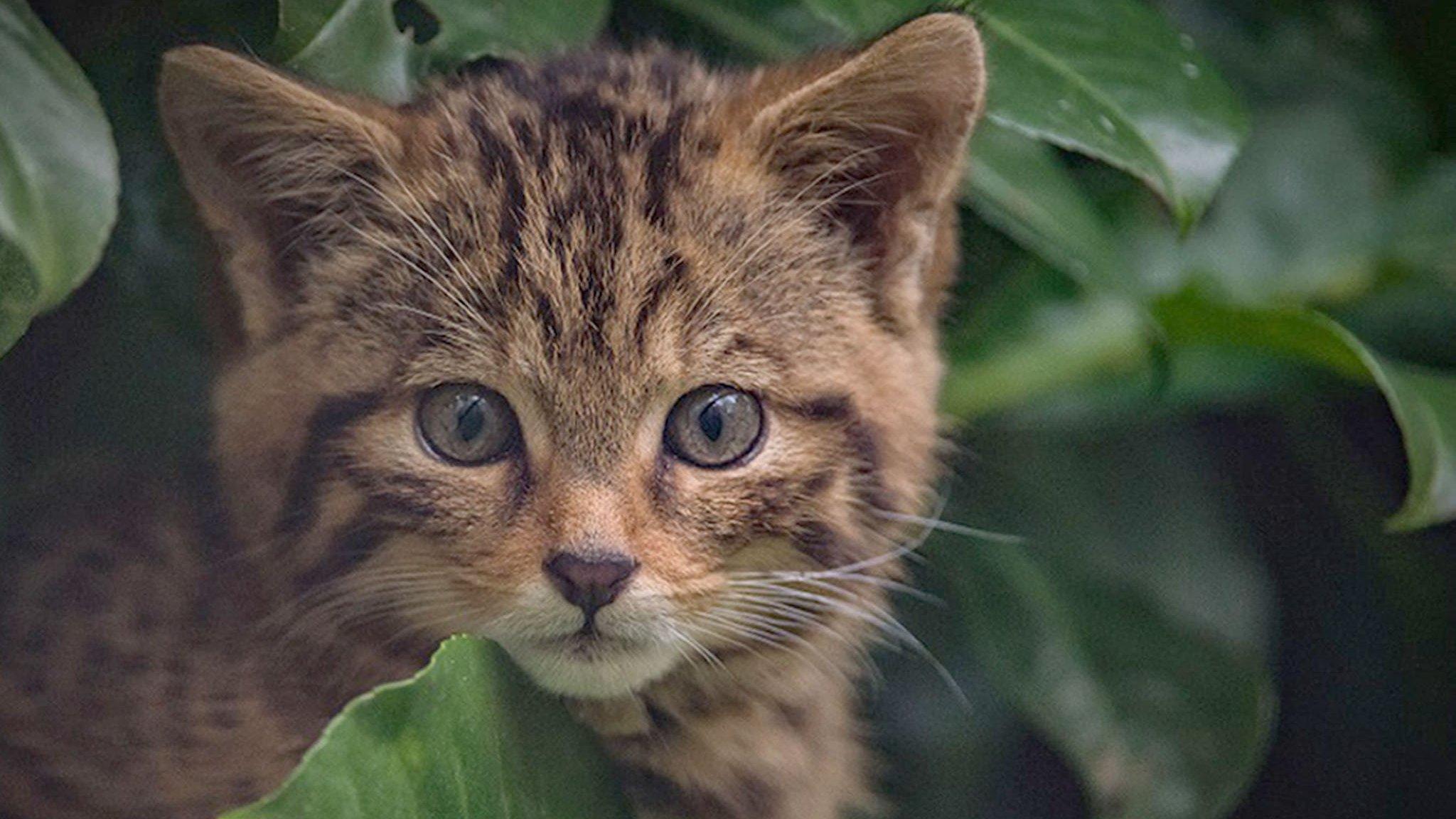Conservation: Wildcat kittens to be reintroduced in England
- Published
- comments
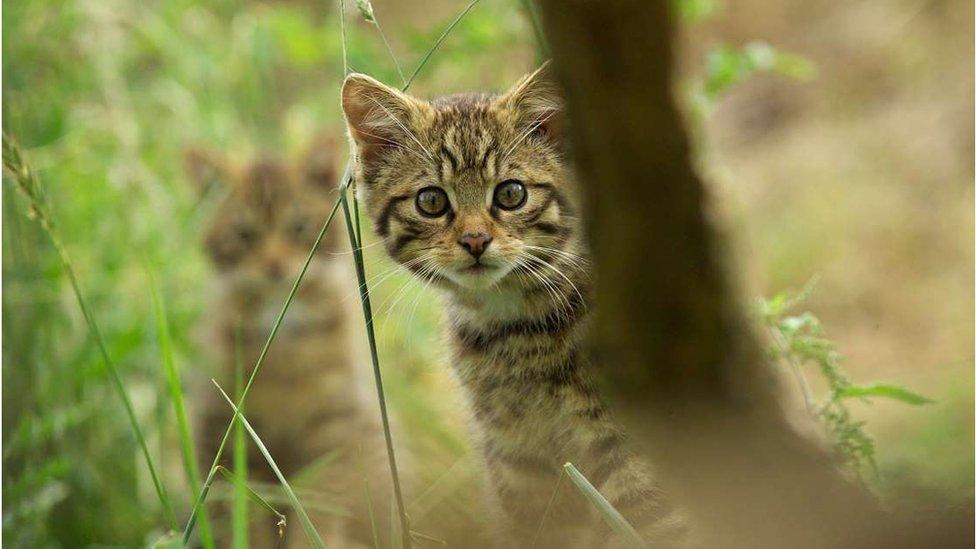
Wildcat kittens are going to be released into the wild in England for the first time in 150 years.
The species was once widely seen across England and Wales but the animal has not been seen in natural conditions in more than a century, largely due to loss of habitat and because of hunting.
There are still few dozen of the animals in Scotland but it is at risk of extinction.
But now a conservationist in Devon has started his own breeding programme.
Derek Gow is a farmer and expert on mammal reintroduction and has built a wildcat breeding complex on his farm.
He's already been part of plans to reintroduce water voles and beavers in many parts of Britain. Now he has established a wildcat facility in Devon with three pairs.
He hopes to introduce the cats into the complex this year and then release them into the wild in three years' time.
Derek now has four kittens in total, 3 male and 1 female, but his aim is to have a population big enough to breed 150 wildcat kittens every year.
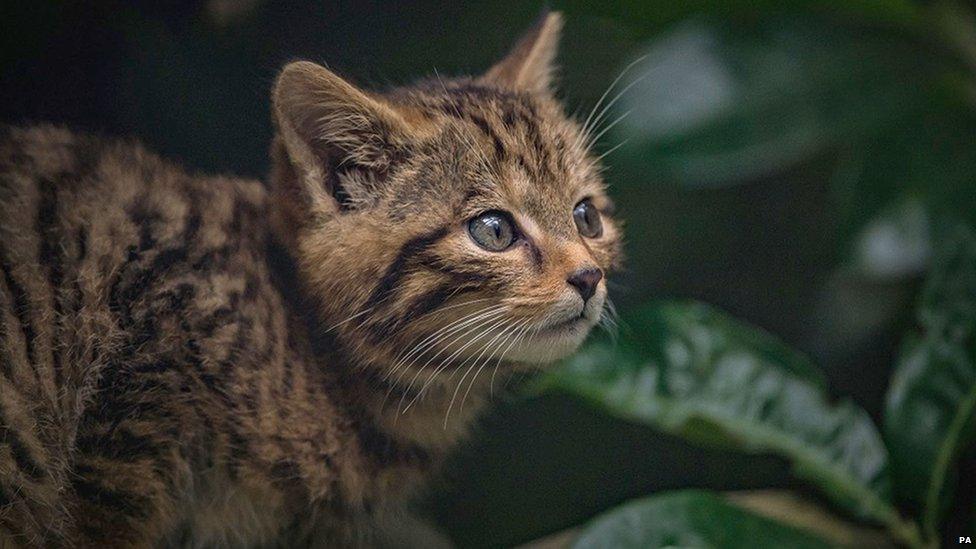
The Scottish wildcat is at risk of extinction
The British wildcat resembles the sort of cat you might have as a pet, but it is larger with a wider face and thicker fur.
These guys (and girls) have been living in Britain since around the last Ice Age.
They were rumoured by some to be man-eating predators but in reality these cats are incredibly shy and avoid all human contact.
This isn't the only project like this - the Royal Zoological Society of Scotland is already breeding wildcats.
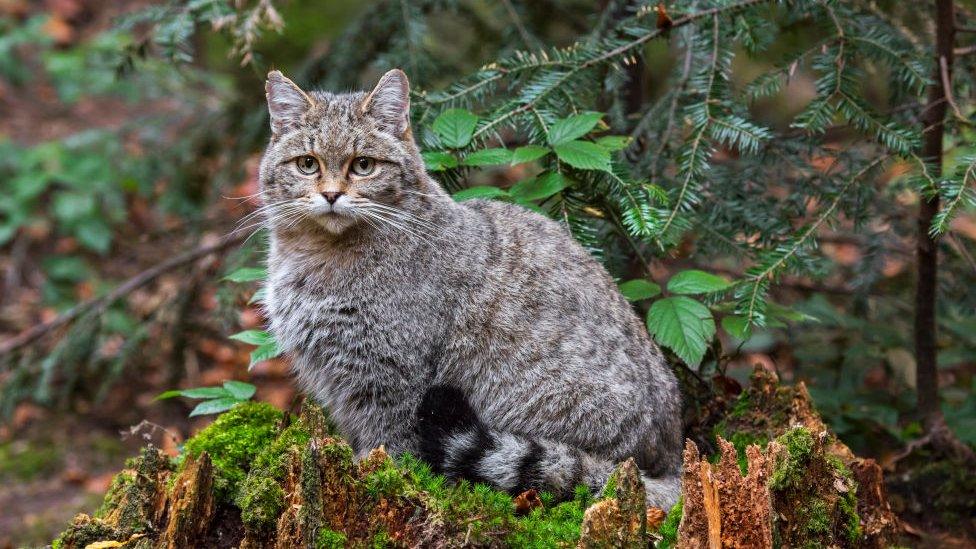
European wildcat numbers are growing in some coutries after similar programmes
The Department for Farming and Rural Affairs (Defra) is developing a code of best practice for reintroduction projects so that reintroductions are done safely, but because the wildcat is still found in the wild in Scotland, they are allowed to be released in England.
Defra said: "The movement and release of any species in England, including wildcats, should follow the International Union for Conservation of Nature guidelines. These guidelines ensure there are clear environmental and socioeconomic benefits to gain from releasing the animals and that their welfare is maintained."
The National Farmers' Union have some concerns about releasing wild cats and want the potential effects to be understood better.
"Any species introduction, particularly if it has been absent from this country for many decades or even centuries, can have massive impacts on the many benefits that the countryside and farming delivers. The landscape could be very different and this poses potential risks."
- Published31 July 2017
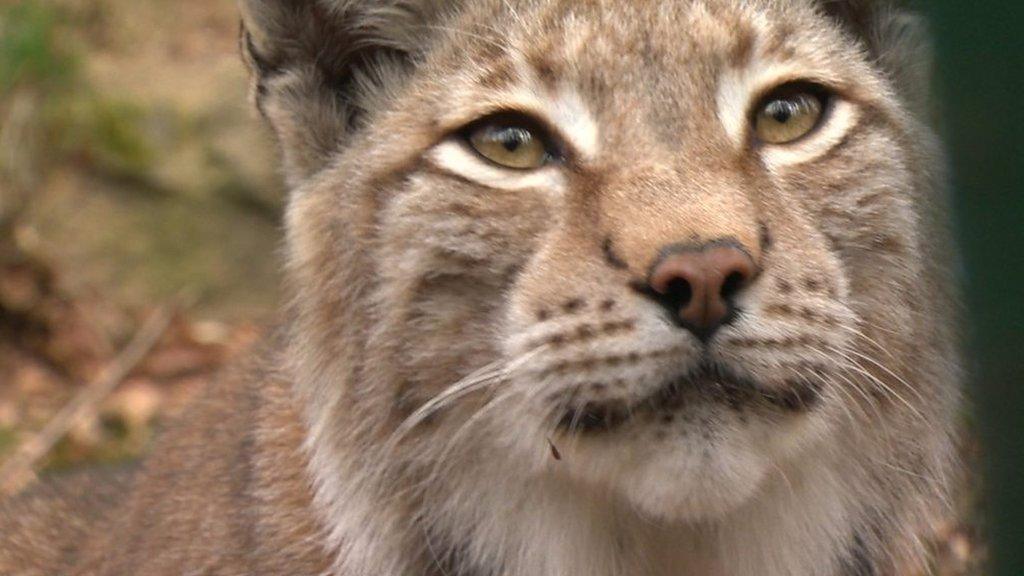
- Published28 March 2018
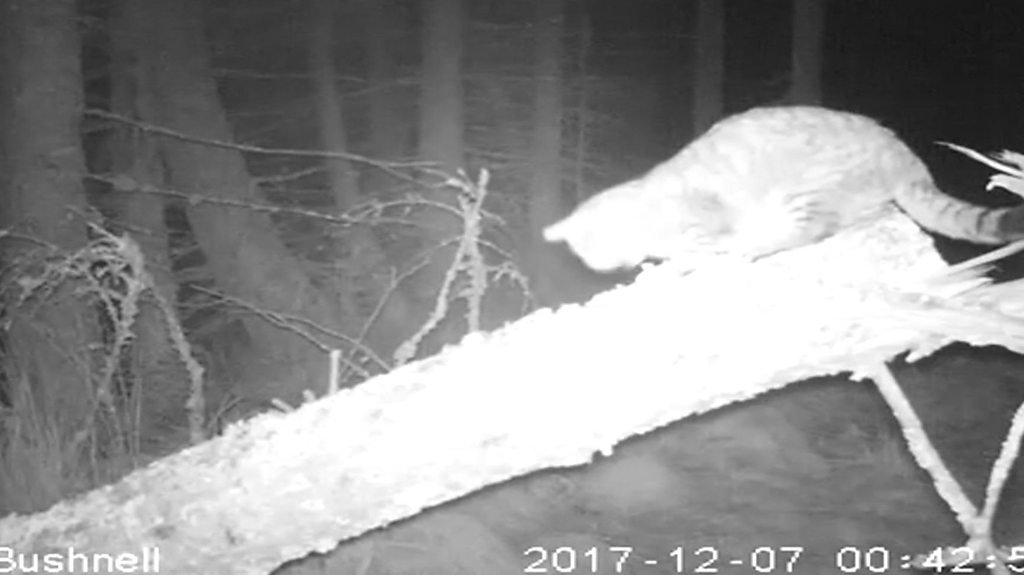
- Published8 December 2018
